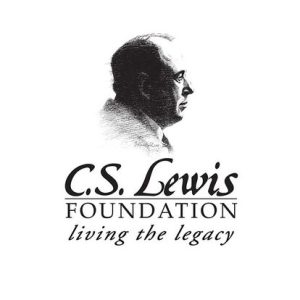
EPISODE SUMMARY:
In the last episode we explored the central metaphor of “the silent planet” – the idea that the earth is fallen and cut off from the heavens and now under the domain of the evil one. Ransom’s journey to Malacandra put him in contact with three unfallen races, and also gave him the opportunity to gain a greater appreciation or understanding of man’s depravity. In this episode we’ll explore the idea of fallen and unfallen alien creatures and what that might been for Christianity.
EPISODE NOTES:
In chapter 16 of Out of the Silent Planet, we encounter a scene where we find unfallen creatures struggling to understand the bent-ness of humans. We also find Lewis offering a partial explanation with the idea that each human wants to be a “little Oyarsa.” We are confronted with an interesting theological possibility: could there by unfallen intelligent creatures in the universe?
In an excellent essay by Chad McIntosh and Tyler McNabb called “Houston, Do We have a problem? Extraterrestrial Intelligent Life and Christian Belief,” they explore the question of ETI and whether their existence might conflict with any Christian doctrine. It has been argued that the doctrines of the fall, incarnation, and atonement rule out unfallen ETI. However, as McIntosh and McNabb argue, the assumptions employed in this kind of theological reasoning can be challenged.
Let’s consider three assumptions often made and the validity of each assumption by those who argue that there would be a conflict between ETI and Christianity.
- All intelligent life would be fallen and need to be saved. NB: to be fallen is to be in the state of needing to be redeemed.
- All fallen intelligent life is saved only via incarnation.
- There cannot be multiple incarnations.
They conclude that there is no obvious conflict between the existence of unfallen creatures and Christianity. McIntosh and McNabb think there is a kind of narratival conflict or tension between ETIs and the Christian story. The extent to which ETI disrupt the Christian story depends on the level of interaction between humans and ETI. Even in the worst-case scenario where ETIs come to destroy humans, it could be that (1) the event could be situated in the Christian story, or (2) the Christian story would expand in a way that includes such an event, or (3) there would be no dramatic change in our understanding of the Christian story at all. After all, we have independent justification for the truth of the Christian story (arguments for God and the evidence for the resurrection).
Conclusion: These are the most plausible versions of conflict. None of them represent actual conflict between ETI and Christianity. Thus, there is no conflict between ETI and Christianity.

RESOURCES MENTIONED:
- Robin Collins, “Extraterrestrial Intelligence and the Incarnation,” in God and the Multiverse
- Brian Hebblethwaite, “The Impossibility of Multiple Incarnations”
- S. Lewis, Out of the Silent Planet
- S. Lewis, Perelandra
- A. McIntosh and Tyler Dalton McNabb, “Houston, Do We Have a Problem? Extraterrestrial Intelligent Life and Christian Belief,” Philosophia Christi 23.1 (2021)
- David Wilkinson, Science, Religion, and the Search for Extraterrestrial Intelligence




